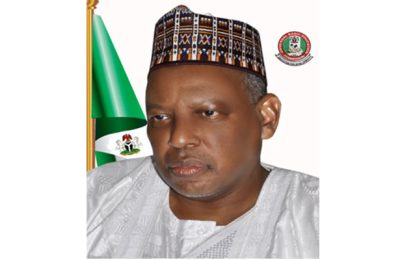The Federal Government has been urged to diversify its revenue sources, such as adopting an asset-driven economy, complete removal of PMS subsidy and increasing VAT rates to mitigate budget deficits.
This was the economics opinion at the hybrid 2023 budget seminar of the Department of Economics, University of Ibadan, in conjunction with UI Eco Alumni Council, which took place on Thursday.
In his presentation on the fiscal and economic components of the 2023 budget, Dr. Ayo Teriba, the CEO Economic Associates, said the Federal Government, by establishing the Ministry of Finance Incorporated (MOFI), has taken the right step towards generating revenue from national assets, and as such would maximise profit and attract more Foreign Direct Investments (FDIs).

Dr. Teriba argued that the revenue projection of the 2023 budget is unrealistic, mainly because it is tax-based, with more than half of Nigeria’s active working force still unemployed.
He noted that with Nigeria’s debt to rise by N33 trillion from N44 trillion to N77 trillion in 2023, “the door of foreign debt issuance may well be closed to the Nigerian government if the recent serial sovereign risk downgrades are anything to go by.
“The limits of domestic debt issuance might have been reached if the N22 trillion stock of the outstanding Ways and Means advances is anything to go by. Nigeria has little or no debt issuance headroom at home or abroad.”

Dr. Teriba added that for the budget to be more realistic, “Nigeria must leverage state-owned assets such as corporate assets, real estate and infrastructure, to generate revenue or issue equity or convertible bonds.

“Nigeria must explore issuable equity liabilities as a better and more sustainable substitute to debt liabilities. Corporate assets offer equity issuance/securitization headroom at home and abroad. Real estate offers equity issuance options on residential, commercial and industrial infrastructure assets. Infrastructure offers vast opportunities for operating concessions and joint venture arrangements,”
Speaking on “Enhancing Revenue Collection for Growth and Development,” Dr. Olumuyiwa Adedeji, a former Senior Economist with the International Monetary Fund, said the Federal Government should consider total and permanent removal of PMS subsidy and streamline existing VAT exemptions as measures to increase revenue.
Dr. Adedeji said other measures include “increase excise rates on alcoholic and tobacco products combined with broadening the base; strengthen inter-agency coordination and data sharing; an eventual increase of VAT rates and design more progressive tax systems, particularly property and land taxes.”
He stressed that an improved revenue collection will help the government “reduce fiscal vulnerabilities and create policy space, ensure adequate financing for social services and infrastructure and achieve higher economic growth.”
Dr. Adedeji added that revenue could be improved by “restoring oil production to pre-2020 through effective monitoring and surveillance to address oil theft and pipeline vandalisation and governance issues, and reviewing the arrangements underlying the importation of refined fuel products, including estimated daily consumption.”
Dr Afolabi Olowookere, in his presentation on “Improving the Level of Composition of Public Expenditure,” argues that for Nigeria to earn more, it has to spend more, especially on capital projects.
He said, “The size of the Nigerian government budget has risen significantly over time, but compared to the size of the economy, it is relatively small.
Also Read:
Nigeria is ambitious in its projected revenue and expenditure. It can meet its recurrent expenditure but needs more revenue, leading to low capital, performance and a high budget deficit. Attempts are made to increase the share of capital in budgets but actual capital expenditure has yet to be below expectation.
Some peer countries allocate higher capital expenditure to the economic sector than Nigeria. These countries also allocate lower proportion to public administration and security than Nigeria.
Other speakers at the seminar include Professor Olanrewaju Olaniyan, who spoke on “Fiscal and Structural Reforms to boost Nigeria’s Economic Prosperity Beyond Macroeconomics; Prof. Adeola Adenikinju, the Head of Economics Department, UI and Prof. Ibi Ajayi, a retired Professor of Economics, UI.








